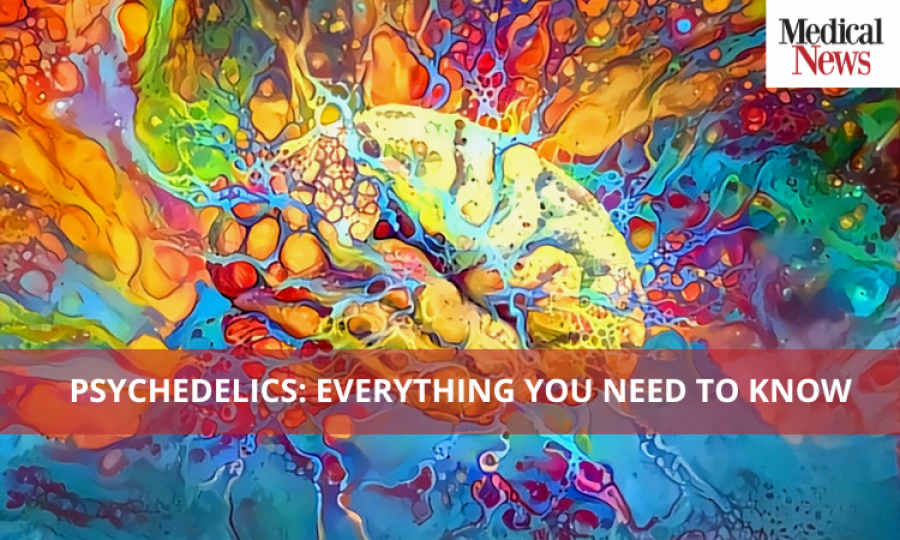Psychedelics: Everything you need to know

Psychedelics are powerful psychoactive substances that lead to changes in perception, mood, and various cognitive processes. These also affect all of the five primary senses of a person. In medicine, there has been limited use as anaesthetics and treatment of mental disorders such as depression and post-traumatic stress disorder. However, psychedelics have a high chance of addiction and a history of people using them recreationally. Some commonly used psychedelic drugs are:
Mescaline
It is a hallucinogenic drug used recreationally and to supplement certain types of meditation and psychedelic therapy. It leads to reduced functioning of the right hemisphere of the brain and results in an altered state of consciousness. It makes the person feel happy, euphoric, and feel like they are in a dream-like state. Nausea, vomiting, diarrhoea, dizziness, anxiety, increased blood pressure, excessive sweating, amnesia, and seizures are possible side effects.
LSD
LSD stands for lysergic acid diethylamide- an extremely potent hallucinogenic. There has been an interest in studying its uses as a treatment for depression and alcoholism. It induces its hallucinogenic effects by interacting with serotonin receptors in the brain. Serotonin is a neurotransmitter that helps control behaviours, moods, senses, and thoughts. It has numerous effects, including hallucinations, anxiety, increased blood pressure, distorted visual perception, flashbacks, and dilated pupils.
Psilocybin and Psilocin
Colloquially known as magic mushrooms, they are used in spiritual rituals, recreationally, and as medicine. As this drug has the potential to stimulate certain parts of the brain, there is a scientific interest in its uses for addictions, depression, and various mental and psychological disorders. People have used psilocybin for alcohol use disorder, anxiety, migraines, post-traumatic stress disorder, and other conditions, but there is no valid scientific evidence supporting this. Side effects may include hallucinations, anxiety, dizziness, paranoia, muscle weakness, and impaired concentration.
Marijuana
It is one of the most commonly addictive drugs. There is a growing number of areas where it is being legalized due to its medicinal use. It can help in conditions such as chronic pain, controlling chemotherapy side effects, and eating disorders. Some small studies have demonstrated its usefulness in relieving symptoms of multiple sclerosis, Crohn’s disease, inflammatory bowel diseases, and epilepsy. However, it may lead to a person feeling an altered sense of time, mood changes, impaired body movement, hallucinations, difficulty with thinking and problem-solving, and psychosis in the short term. It can also cause breathing problems, increased heart rate, problems with pregnancy, nausea, and vomiting.
Conclusively, psychedelics have both advantages and disadvantages. However, they are at high risk of being misused. It is essential to note that these drugs are still under study and their effects on the brain can be dangerous if not taken with proper care. Using them is not advised unless suggested by a medical professional.
Trending
Popular
Sindh pledges vigorous action to prevent poliovirus transmission
-
PMA stresses health equity on World ...
04:08 PM, 9 Apr, 2024 -
Dow University’s new rabies vaccine ...
12:18 PM, 28 Mar, 2024 -
IRD role lauded in advancing ...
02:53 PM, 12 Mar, 2024 -
Over one billion people worldwide ...
09:48 AM, 5 Mar, 2024




